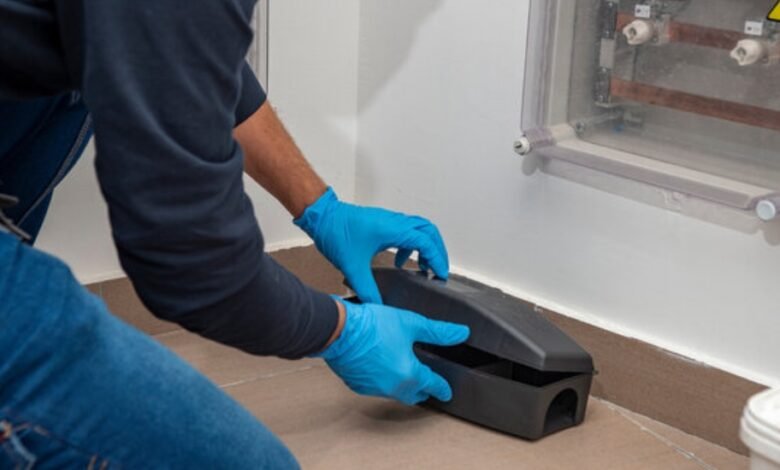Eco-Friendly Rodent Control Solutions Companies using herbal, non-toxic, or humane methods

Rodentia, mostly rats and mice, is a common pest in all areas, urban or rural. Unfortunately, they cause serious devastation. When the presence of these pests is in a home, business, or public facility, they can cause contamination of food, disease transmission, and a whole host of destructive behaviours to electrical wires, buildings, etc. For many years, companies have resorted to the use of aggressive chemicals to deal with this problem. A new wave of manufacturers is offering solutions that are ecological and non-toxic consisting of plant extracts or promise the use of integrated pest control management strategies such as integrated pest management.
Why ditch conventional rodenticides?
Rats and other rodents are present in nearly every aspect of the urban and rural habitat. The presence of rodents in our the homes, every business and community buildings, can have seriously detrimental outcomes: contaminating our food, vice versa, transmitting or infesting upon diseases, damaging the structure, by short-circuiting electrical cables needing repair/replacement, and by the list consequence is endless. Many companies have relied upon many aggressive chemical approaches to counter this threat, but a new cohort of companies has emerged, all using ecological, non-toxic plant extracts or integrated pest management (IPM) in their attacks to a scourge. Eco-friendly companies are increasingly turning towards more eco-friendly options, which address both causes of an infestation instead of just its symptoms.
The principles of ecological struggle
Ecological rodent control relies on three core ideas—prevention, deterrents, and non-lethal capture. The goals of altering the rodents’ environments to make them less likely to settle and “take up residence” without using toxic agents—this may be accomplished through sanitation measures and eliminating food sources or closing entry points using natural repellents as a form of indictments. Many of these options can often be coordinated together as part of pest management planning recognized as Integrated Pest Management to maximize benefits and reduce potential impacts.
Plant-based repellents: an ecological and effective solution
Companies are increasingly turning to plant extracts to deter rodents.There are products that contain peppermint, eucalyptus, cloves or cayenne pepper that give off odors that are unpleasant to rodents and could be sold as repellents and be sold in sprays, sachets or granules that are placed in strategic areas where rodents are endemic or attacked, like kitchens, basements or attics. Repellents unlike poisons do not kill the pest they simply repel it.Repellents further protect humans and pets and are environmentally friendly.
Non-toxic traps: catch without harming.
Mechanical or live traps can be found as another environmentally conscious option: mechanical or live traps. These devices let you catch rodents without harming them, and after catching them, you then unleash them back into the wild. These devices are generally made from recyclable materials with automatic closing features, plant-based baits, and motion sensors to produce the highest impact and are great for the most sensitive homes, educational institutions, hospitals, or companies concerned with an ethical image.
Integrated pest management: a global strategy
Many environmentally aware businesses are now looking to integrated pest management (IPM) for the best solution, a system that can include several typical components. The overall process involves an inspection identifying the source of the infestation, the entry point, nesting point, and things that enable rodent presence; preventive component installation is next, expanding on the previous point by sealing cracks in the structures, improving cleanliness and hygiene, and attaching physical deterrents; the next set of curative component(s) which might include natural deterrents, nontoxic traps, or electronic devices such as ultrasound; and, lastly, maintaining the process through monitoring to adapt where necessary to ensure sustainability.
Pioneering Businesses in the Industry
Companies such as The Pests are notable for their environmentally-oriented inclusive integrated pest management and their wide range of IPM experiences including all types of botanical based repellents, mechanical traps and diagnostic approaches to offer custom solutions to each pest agent. In the case of Pakistan, even though market development is still underway there are companies that have started to incorporate some elements of sustainability with sustainable pest management using plants abundant locally, advice on hygiene behaviours, and the use of non-invasive practises as sustainable treatment and other sustainable alternatives that are driving applied innovation and at the same time instilling change towards solutions that are more responsible.
Environmental and Social Advantages
When you use an environmentally-friendly rodent control company, you realize many benefits: – your environmental steward colleagues value your decision for the reduction of chemical pollutants; for the additional friendship you could provide prescribed biodiversity; and, for limiting the likelihood risk to non-target species – health care professionals see the advantage of protecting the occupants of the building from toxic products with more than just the risk of a child with asthma. And socially, selecting environmentally approaches your declared commitment to our long-term sustainable development and indicates the improvement of working conditions that are persistently odor free, completely eliminates rodent carcasses or the risk of poisoning a person (child).
Limits and Challenges that Need Addressing
While ecological rodent control solutions have many advantages, they also present certain constraints. Their effectiveness may decrease in cases of widespread infestation where more drastic solutions may be required. Chemical methods often require more time, monitoring, and rigor than natural or ecological solutions. Their initial cost may be greater, yet this may be offset by reduced risks and repeated interventions; raising awareness among both professionals and members of the public can be the main challenge here. Many remain unaware of these alternatives or question their effectiveness; therefore, it is essential to promote these methods, train technicians on them, develop innovative products for sustainable control, and tighten regulations accordingly.
Conclusion: Towards responsible pest control
Ecological rodent control or spider elimination represents an impressive advance in pest management. Combining efficiency, safety, and respect for the environment to provide tailored responses to health, environmental, and ethical challenges of our time, it helps companies adopting these methods contribute to creating a healthier world and more responsible culture—for individuals as well as businesses alike, opting for eco-friendly solutions is not only preventative but also acts as a commitment for the future.
